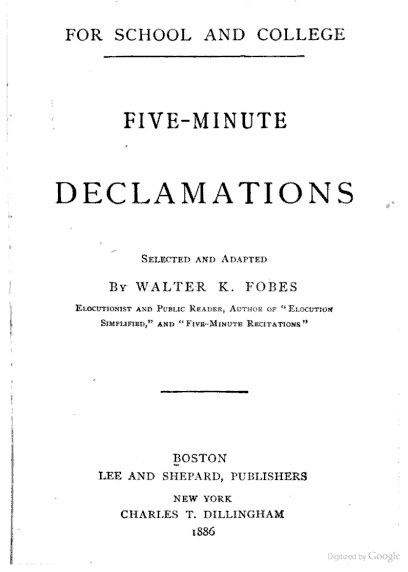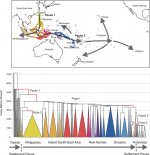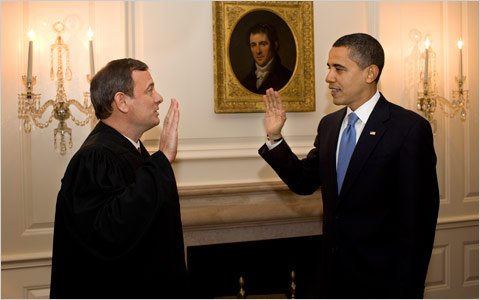Not marble nor the gilded monuments
Opinions were strikingly divided about Obama's inaugural speech, and not necessarily along ideological lines. George Will called it lyrical and Pat Buchanan called it "the work of a mature and serious man"; but in National Review, Yuval Levin said that within a few weeks not a line of it would be remembered, and Rich Lowry spoke of "overwrought clichés and poor writing." At the New Republic, John Judis called it a "disappointing muddle" that "got no style points," while John McWhorter, moonlighting from his Language Log day job, called the speech "worthy of marble" and pointed in particular to Black English influences on Obama's cadences, though he didn't develop the point in detail. And Stanley Fish pronounced the speech a paradigm of paratactic prose, which in its nature "lends itself to leisurely and loving study," and having duly allowed himself to "linger over each alliteration [and] parse each emphasis," predicted that it would be studied in a thousand classrooms: "canonization has already arrived."
Those are the criteria people always bring to this sort of address: Was it memorable? Marmorealizable? Did he stick the landing? It's understandable, a way of flattering ourselves that ritual oratory still matters. But I have the feeling Obama and his writers knew better.
Of course it was a very memorable event, on a historic, make that epochal, occasion. And the speech is sure to be memorialized — in fact Penguin Books is already on it.
But if the speech was well turned, it wasn't memorable. What's more, it didn't need to be memorable. It couldn't have been memorable. And my guess is that nobody tried too hard to make it memorable. As I put the point in a "Fresh Air" piece that aired today [full text here ]:
Obama’s speech made all the required moves: it was grave but not doleful; resolute but not belligerent, eloquent but not grandiloquent. Its acknowledgments were eclectic: Biblical allusions, a nod to Tom Paine, a shout-out to Jerome Kern.
But it wasn’t especially memorable. If we still lived in an age when people compiled collections of great speeches for pupils to memorize and declaim on national holidays, the editor would more likely go with the moving speech that Obama made in Grant Park on the night of the election.
But that isn't necessarily a weakness of the speech.
Read the rest of this entry »



